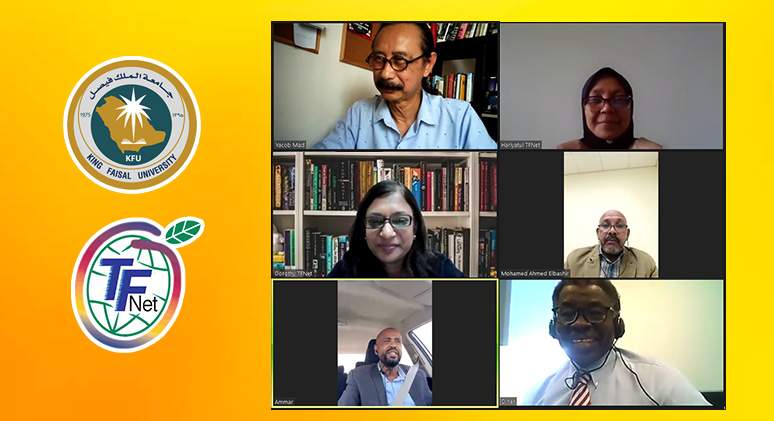Asia accounts for 70 percent of global mango production followed by Africa, the Americas and Oceania. Besides Egypt, a major mango producer in the middle east is Saudi Arabia. Even though Saudi Arabia is a net importer of mango, it produces roughly 40 percent of its domestic demand. Saudi Arabia imports mango from Egypt, Yemen, Pakistan, India, Kenya and South Arica. In its efforts to increase domestic production of tropical fruits, Saudi Arabia has focused on technologies that can double up the current mango / tropical fruits production.
International Tropical Fruits Network (TFNet) is embarking on a consultative partnership with King Faisal University to improve the tropical fruit industry particularly mango in Saudi Arabia. The one-year consultancy on ‘Enhancing the production of mango and other tropical fruits to address demand and market in the the Kingdom of Saudi Arabia’ is aimed at improving current production through the introduction of recent technologies and best practices. The objectives of the project include assessing the current production practices, recommendations of technologies, establishment of a model farm and enhancements of components along the value chain. The TFNet team will be supported by an expert from Australia who will provide details of technologies that are more suited for arid and semi-arid agriculture. The project is expected to begin with an assessment visit and inception workshop in February/March 2023.
The project is under the Ministry of Environment, Water and Agriculture Initiative 2:10 that relates to the development of agricultural practices to improve the yield of fruits, vegetables, dates and field crops in the Kingdom of Saudi Arabia.
The objectives of the project include assessing the current production practices, recommendations of technologies, establishment of a model farm and enhancements of components along the value chain. TFNet will be supported by an expert from Australia who will provide details of technologies which are suitable for arid and semi-arid agriculture. The project is expected to begin with an assessment visit and inception workshop in February / March 2023.

